Class 4 impact-resistant shingles are designed to protect your roof from hail and debris damage, making them a strong choice for areas with severe weather. These shingles use advanced materials like polymer-modified asphalt, allowing them to absorb impacts without cracking. While they cost more upfront, they can save you money in the long run through fewer repairs, longer lifespan, and potential insurance discounts.
Key Points:
- Durability: Tested to withstand hail and debris using the UL 2218 steel ball test.
- Materials: Made with polymer-modified asphalt for flexibility and strength.
- Benefits: Fewer repairs, possible insurance savings, and longer lifespan (30–50 years).
- Drawbacks: Higher initial costs and professional installation required.
- Best For: Homes in hail-prone or high-wind regions like the Central Plains or Midwest.
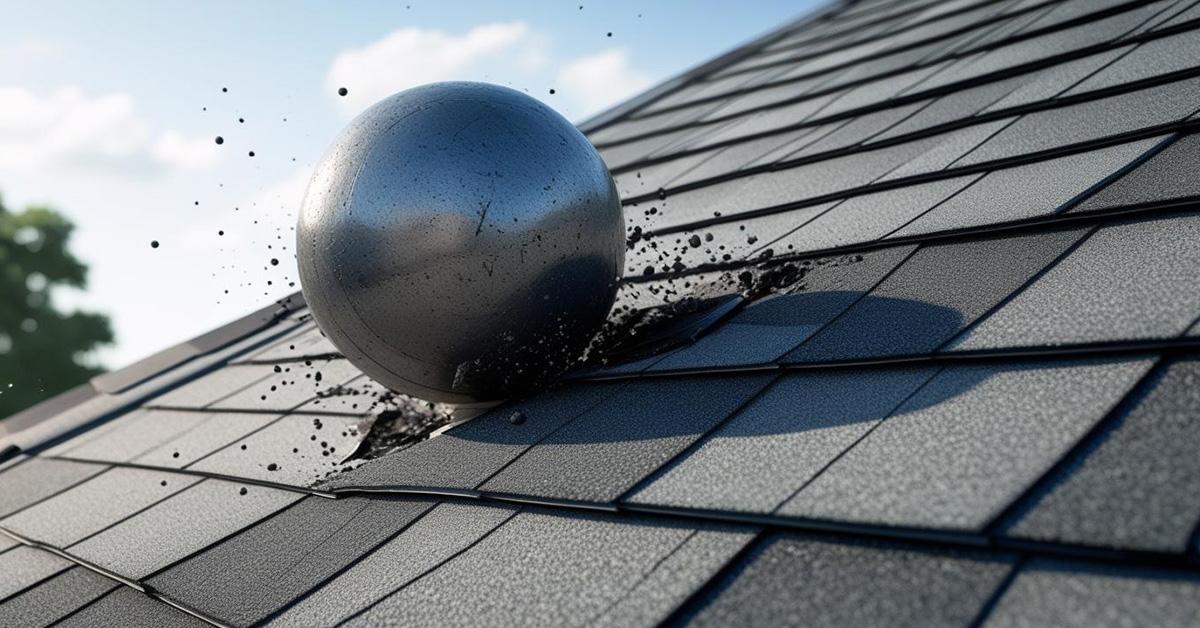
If you live in a storm-prone area, these shingles could be a wise investment. However, for milder climates, the added cost may not be justified. Always consult a local roofing expert to determine if they’re a good fit for your home.
Class 4 Roof Shingles: Are They Worth the Cost? @malarkeyroofing
Class 4 Impact-Resistant Shingles Explained
Class 4 shingles are known for their impressive durability, and this reputation is backed by rigorous testing and advanced materials. To understand what sets these shingles apart, it’s helpful to look at how they are evaluated and the unique design features that make them so resilient.
How Class 4 Shingles Are Tested
The UL 2218 test, also called "the steel ball test", is the standard method for measuring the impact resistance of flexible roofing materials like asphalt shingles. During this test, a 2-inch steel ball is dropped from a height of 20 feet onto the shingle, striking the same spot twice. To earn a Class 4 rating, the shingle must endure this test without showing any signs of tearing, cracking, splitting, or fracturing on its underside. These stringent criteria highlight the high-performance standards of Class 4 shingles.
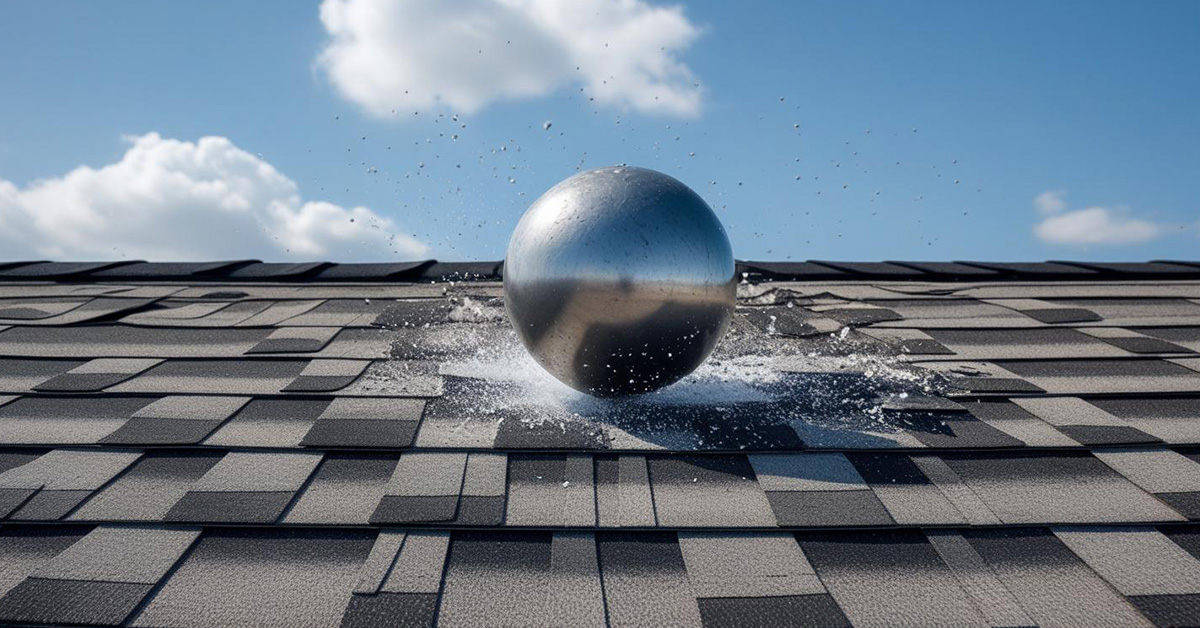
The test focuses on the roof’s most vulnerable areas, such as edges, corners, and joints, to ensure comprehensive durability. Another test, the FM 4473, evaluates impact resistance by simulating hail damage. For Class 4 shingles, this involves withstanding impacts from ice balls with a 2-inch diameter. While these tests demonstrate initial impact resistance, it’s worth noting they don’t account for long-term factors like weathering, aging, temperature changes, roof slope, or installation techniques – all of which can influence performance over time. These demanding evaluations drive the advanced material and design innovations discussed below.
Materials and Design Features
The exceptional performance of Class 4 shingles is largely due to the specialized materials used in their construction. These shingles incorporate polymer-modified asphalt, which allows them to flex under impact rather than crack. Research from a hailstorm near Dallas demonstrated that polymer-modified asphalt significantly outperforms traditional materials under similar conditions.
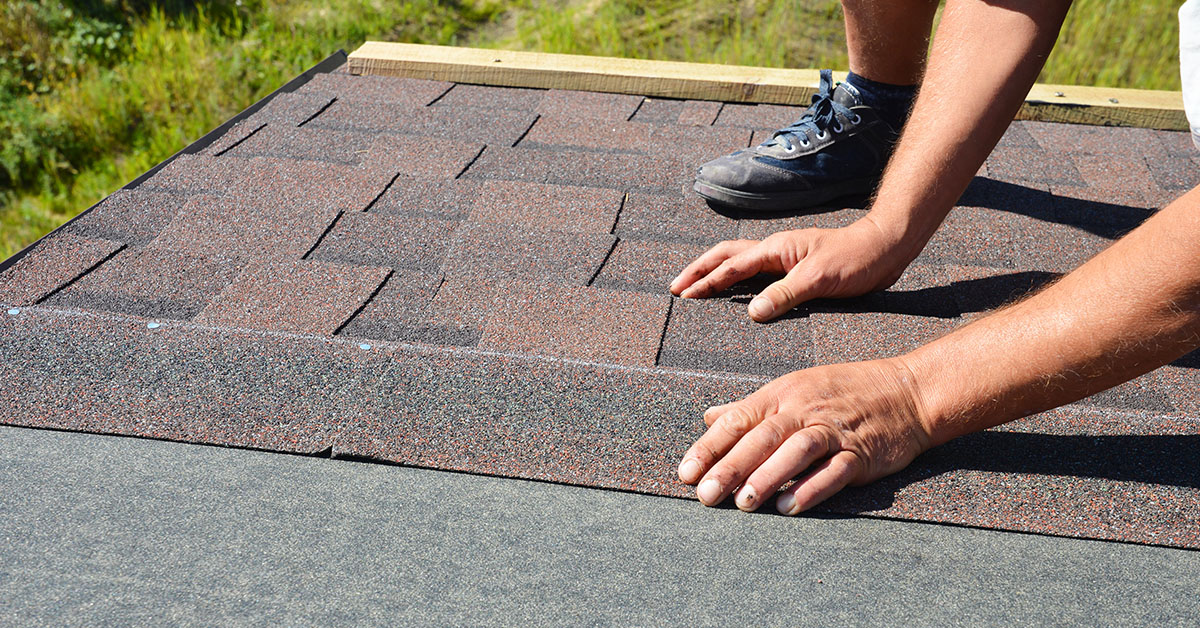
Class 4 shingles are also thicker and denser than standard asphalt shingles. While regular shingles may crack or split when subjected to a 2-inch steel ball impact, Class 4 shingles remain intact, showing no tears or fractures. The reinforced asphalt and specialized polymers evenly distribute impact forces, minimizing concentrated damage. This enhanced construction not only protects against hail but also offers greater resistance to wind-blown debris and other impacts, ensuring your roof stays intact during harsh weather conditions.
Benefits of Class 4 Impact-Resistant Shingles
Class 4 shingles are designed to be tough and reliable, offering a smart way to protect your property. Let’s break down how these shingles provide both immediate and long-term advantages.
Stronger Against Harsh Weather
Made with polymer-modified asphalt, Class 4 shingles are built to handle heavy hail and strong winds. This means fewer emergency repairs and less risk of water damage sneaking into your home. By keeping your roof intact, they also help prevent expensive interior repairs caused by leaks.
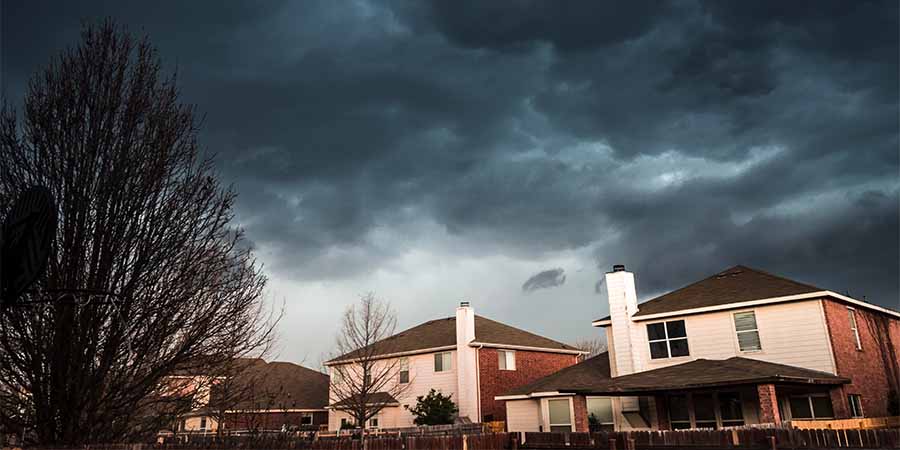
But the perks don’t stop at physical protection – they can also save you money.
Potential Insurance Discounts
Many insurance companies reward homeowners who install Class 4 impact-resistant shingles with lower premiums. Just be sure to keep your installation records handy to prove your roof meets the required standards.

Lower Energy Bills and Boosted Property Value
Some Class 4 shingles come with reflective granules that reduce heat absorption. This can make your home cooler in the summer, cutting down on energy costs and keeping your space more comfortable. Plus, upgrading to these durable shingles can make your property more appealing to future buyers.
While these benefits are impressive, it’s worth considering any potential downsides before making your decision.
sbb-itb-66ccccd
 Drawbacks of Class 4 Impact-Resistant Shingles
Drawbacks of Class 4 Impact-Resistant Shingles
While Class 4 shingles come with plenty of perks, they also have some downsides worth keeping in mind.
Higher Upfront Costs
These shingles tend to cost more upfront because of the specialized materials and manufacturing processes involved. However, the higher initial investment could pay off over time through lower insurance premiums, fewer repair bills, and a longer lifespan.

Installation Requirements
To get the most out of Class 4 shingles, professional installation by skilled, licensed roofing contractors is a must. The process involves precise nailing patterns, proper flashing, and ensuring adequate ventilation – all of which require expertise. Plus, their heavier, reinforced design can bump up labor costs.
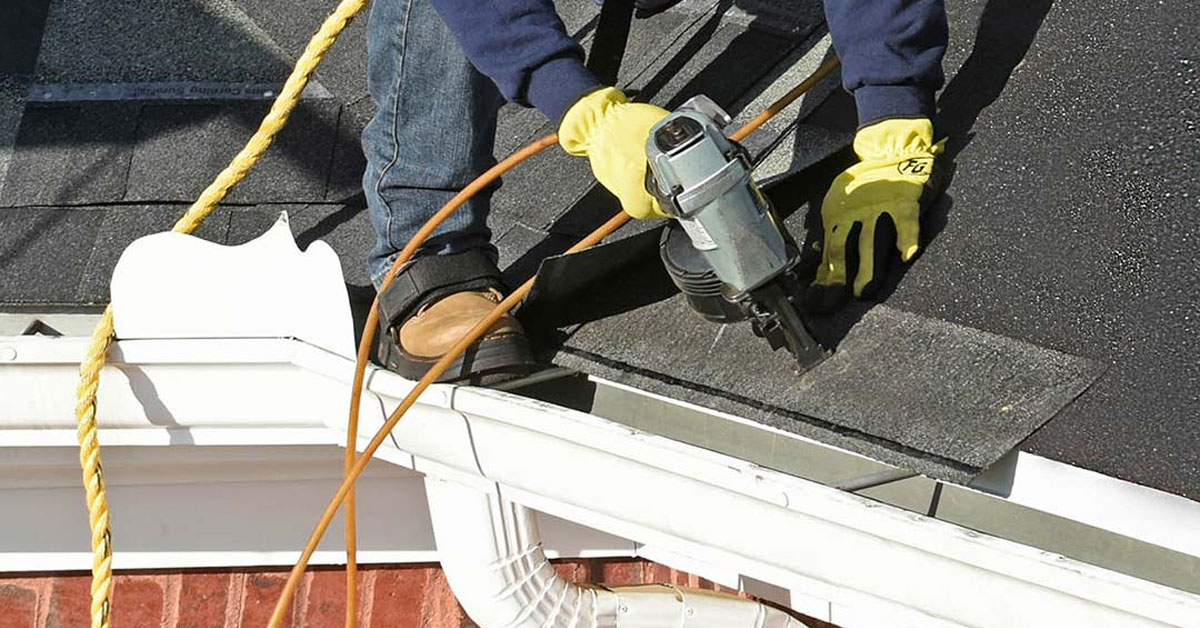
Building Code and Regional Considerations
In areas with mild weather, the added expense of Class 4 shingles might not make financial sense. Additionally, local contractor experience with these shingles can vary, potentially leading to delays or increased costs for the project.
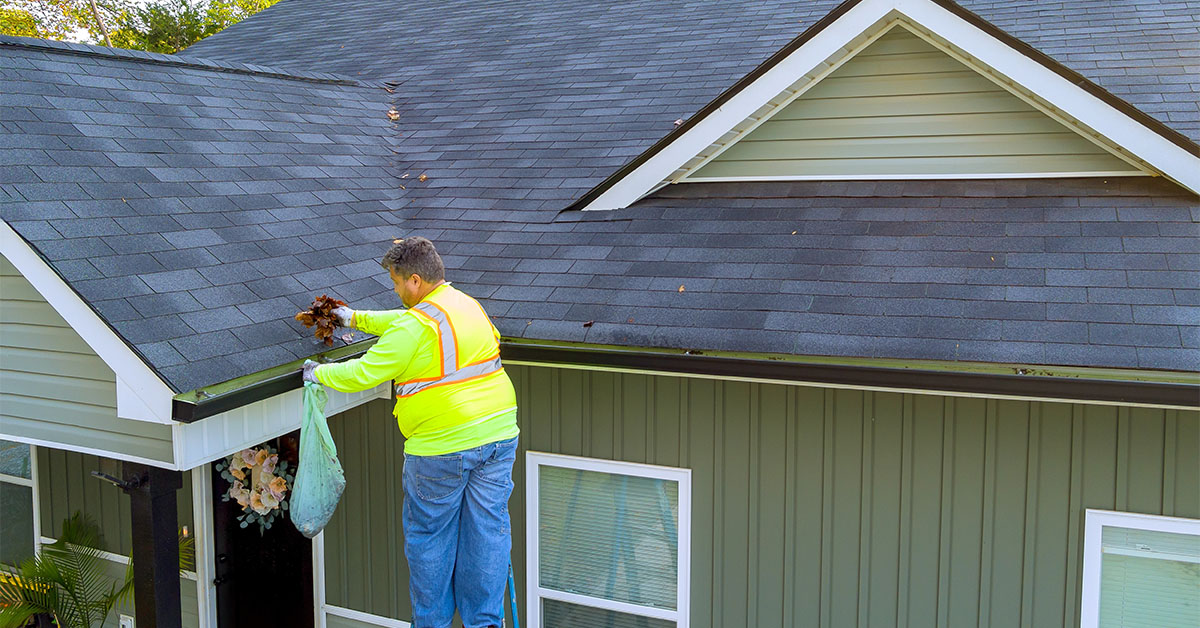
Are Class 4 Shingles Right for You?
Determining whether Class 4 shingles are the right choice depends on factors like your location, budget, and long-term plans. While these shingles offer top-tier protection, they may not be the ideal solution for every situation. Weighing their performance against local conditions is key.
Best Uses for Class 4 Shingles
Class 4 shingles are designed to thrive in areas hit hard by severe weather. They offer strong protection in regions where hailstorms and high winds cause billions of dollars in damage each year. For context, the average hail damage claim costs about $12,000.
These shingles are particularly beneficial for properties like commercial buildings or historic homes. Such structures often face higher repair costs due to their unique features and higher replacement expenses. With a lifespan of 30–50 years – compared to the 15–30 years typical of standard shingles – and potential insurance discounts ranging from 15–35% , the upfront investment can pay off in the long run.
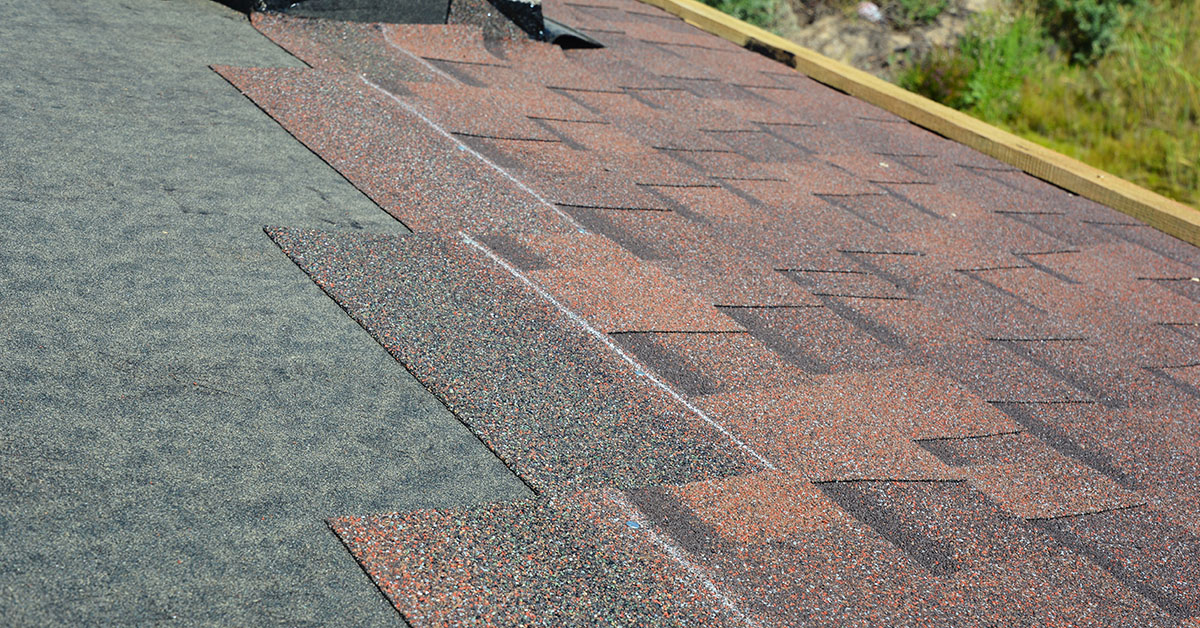
For properties in high-wind areas, the advantages are even more pronounced. From 2014 to 2018, hail and wind damage accounted for 41% of home insurance claims, with $13 billion in property damage reported in 2019 alone. If your region frequently experiences severe weather like thunderstorms, tornadoes, or hurricane-strength winds, the added durability of Class 4 shingles makes them a smart choice.
However, in milder climates where extreme weather is rare, the 10–25% higher initial cost of these shingles may not provide enough financial benefit. In such cases, the investment might not be justified.
Given these considerations, consulting with local experts is crucial to make an informed decision.
How Pro-Tech Roofing Can Help
Pro-Tech Roofing specializes in the installation and maintenance of Class 4 shingles in the Tulsa area. Their certified technicians are trained to meet the specific requirements of these premium shingles, including proper nailing techniques, ventilation, and flashing – critical elements for ensuring the shingles perform as intended.
With certifications from GAF and Owens Corning, Pro-Tech Roofing ensures installations comply with manufacturer standards. This is especially important because improper installation can void warranties and compromise the shingles’ impact resistance. Whether you need roofing for a residential home or a commercial property, their team has the experience to handle projects of any size.
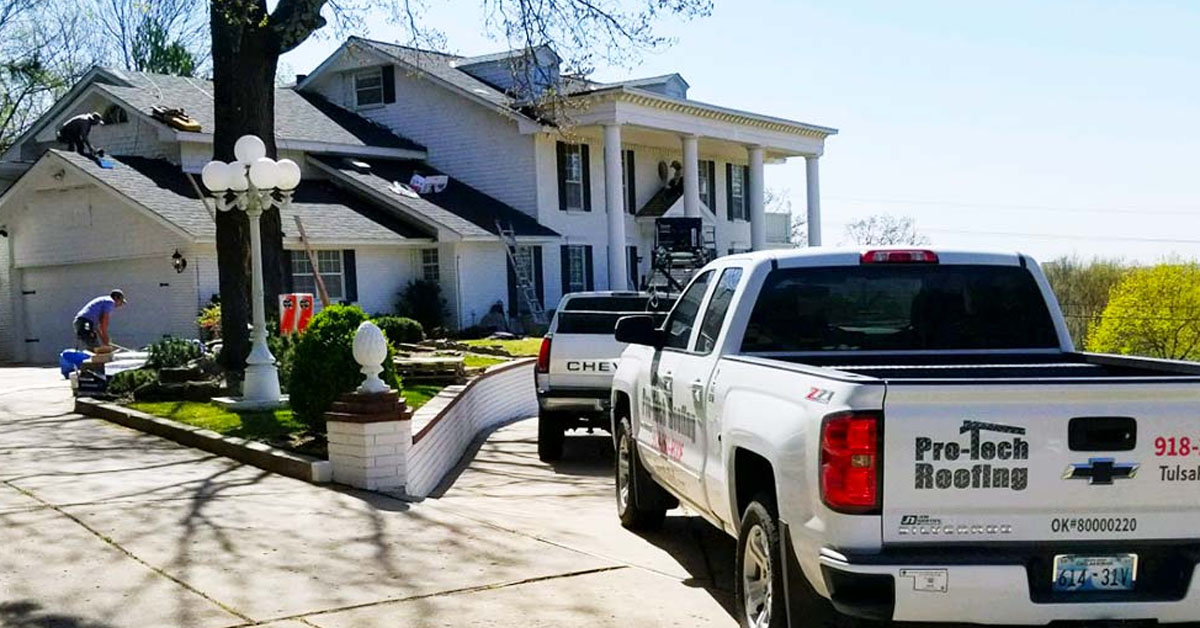
Pro-Tech Roofing also assists with insurance claims, an added bonus since many insurance companies offer discounts for homes with Class 4 shingles. Proper documentation and professional installation can maximize these savings.
Additionally, they provide free roof inspections to evaluate whether your current roof can support Class 4 shingles. Older structures, for instance, may need reinforcement to handle the added weight.
For property owners in Tulsa, Pro-Tech Roofing offers tailored quotes based on the area’s weather patterns and specific roofing needs. With expert installation and ongoing maintenance, they’re a trusted partner for protecting your home or business.
Conclusion: Making the Right Roofing Choice
Class 4 impact-resistant shingles provide a solid defense against harsh weather, offering enhanced durability and a longer lifespan. While they come with a higher upfront cost, they can save you money over time, especially in areas prone to extreme weather, thanks to potential insurance discounts and fewer repair expenses.
The value of these shingles largely depends on where you live. In storm-prone regions, the added protection can far outweigh the initial investment. However, proper installation is just as important to ensure they perform as intended.
Hiring a certified professional for installation is key – not only to maintain the shingles’ performance but also to protect your warranty.
For homeowners in the Tulsa area, Pro-Tech Roofing’s certified team provides expert installation, thorough documentation for insurance purposes, and personalized advice tailored to local weather conditions.
When it comes to your roof, think long-term. Choose a solution that fits your local climate and protects your property for years to come. Balancing upfront costs with lasting protection is the smartest way to secure your investment.
FAQs
Are Class 4 impact-resistant shingles worth the investment for long-term savings?
Class 4 impact-resistant shingles tend to cost 10% to 25% more upfront than standard asphalt shingles. However, their durability can lead to notable savings over time. They are less likely to require frequent repairs or early replacement, particularly in regions that experience hail or harsh weather conditions.
On top of that, many insurance providers offer discounts to homeowners who install Class 4 shingles, which helps to offset the higher initial cost. For those aiming to combine resilience, performance, and long-term savings, these shingles are a smart choice.
What types of weather or areas make Class 4 impact-resistant shingles a smart choice?
Class 4 impact-resistant shingles are a smart option for homeowners in areas prone to severe weather, especially hailstorms. Built to withstand impacts from hailstones as large as 2 inches in diameter, they offer a durable solution that helps minimize the risk of expensive repairs or premature roof replacements.
These shingles are especially useful in states like Texas, Oklahoma, and Colorado – often called the "hail belt" – where hailstorms are a regular occurrence. For those living in regions with unpredictable or extreme weather, they provide reliable, long-term protection. Plus, in some cases, installing these shingles might even make you eligible for insurance discounts, adding an extra layer of financial benefit.
Do Class 4 impact-resistant shingles require any special maintenance to stay effective?
Class 4 impact-resistant shingles are built to handle tough conditions and require minimal upkeep. That said, following basic roofing care practices can help them perform well for years. Make it a habit to inspect your roof regularly, especially after storms, for any debris, damage, or buildup. Keeping your gutters clear is also crucial to prevent water from backing up and causing potential issues. Address small problems quickly to avoid them turning into costly repairs.
Even though these shingles are designed for durability, consistent maintenance ensures they last longer and continue to look their best. If you’re unsure about how to care for your roof, reaching out to a roofing professional can provide tailored guidance.
